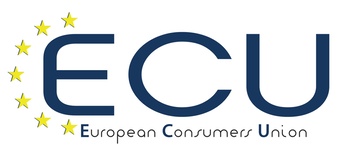Education project of ECU
The five European consumer associations, Federconsumatori Piemonte in Italy, Consumer Defence Association of Moravia and Silesia, Union of Working Consumers of Greece, Lithuanian National Consumer Federation and Association of Consumer Organizations in Slovakia accepted the European Commission’s call for Erasmus +(no. 2018-1-SK01-KA204-046393) in the field of Strategic Partnerships and started to implement common project to promote innovation, exchange of experience and know-how between different types of European organizations.
The aim of the project is to create and verify an innovative program called Development of the Key Competences of Adults by Innovative Program of Consumer Education. The training program is designed for a target group of unemployed adult individuals up to 29 years of age who are characterized as a risk group with prematurely terminated secondary school and with lack of qualifications and skills.
Educational program is based on motivation of young people to acquire the knowledge and skills necessary for everyday life of consumers. In order to encourage unemployed adults to develop their key competencies, educational program creates attractive contents from daily life and use interactive forms of education.
The innovativeness of the project rests in adaptation of the training program to the needs of the target group of unemployed adult individuals. Needs analysis is conducted by method of focus groups in different regions of the countries.
Analysis of the data collected reveals the knowledge, skills, interests, motivations and attitudes to identify development of their key competencies and supporting their motivation for lifelong learning.
Within the project, case studies are created that are attractive educational content. Development of key competencies of students is based on interactive methods of education.
Within the project, indicators are created to assess the development of key competences of the learners. The quality of the consumer education program for unemployed adults is verified on the sample of the target group.
In accordance with the requirements of the ERASMUS program, the educational program has open access to public to enable educators to exchange experiences and to expand the outputs to schools, universities, other institutions, pupils, parents, and all consumers.

Leave a Reply
Want to join the discussion?Feel free to contribute!